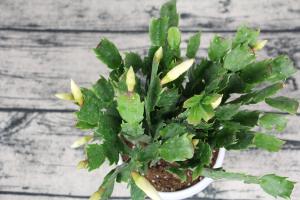When is the Best Time to Plant Tomatoes in Pittsburgh?
Tomatoes are a favorite crop to grow among gardeners and farmers in Pittsburgh. They are juicy, delicious, nutritious, and versatile, and can be eaten fresh, canned, preserved, or cooked in various dishes. However, planting tomatoes at the wrong time can result in poor growth, low yield, disease susceptibility, pest infestation, or flowering or fruiting when it's too cold or hot. Therefore, it's important to know when is the best time to plant tomatoes in Pittsburgh to maximize their productivity and health.
The Climate and Soil in Pittsburgh
Pittsburgh is situated in the USDA Plant Hardiness Zone 6b, which means that the average minimum temperature ranges from -5°F to 0°F in winter. The last frost date typically occurs between April 21 and April 30, and the first frost date usually falls between October 1 and October 10, with an average growing season of 150 to 180 days. The soil in Pittsburgh is mostly clay or loam, which can be enriched with organic matter such as compost, manure, or leaf mulch to improve drainage, aeration, and nutrient availability.
The Ideal Timing for Planting Tomatoes
The best time to plant tomatoes in Pittsburgh is after the last frost date, when the soil has warmed up to at least 60°F and the air temperature is consistently above 50°F. This usually happens in May, but it's advisable to check the local weather forecast to ensure that there are no sudden drops in temperature or unexpected frost warnings. Planting tomatoes too early can stunt their growth or kill them, while planting them too late can reduce their yield or expose them to diseases and pests.
Choosing the Right Tomato Varieties
Another factor to consider when planting tomatoes in Pittsburgh is the variety or cultivar. There are two main types of tomatoes - determinate and indeterminate - which differ in their size, growth habit, and harvest pattern. Determinate tomatoes are compact, bushy plants that produce a finite number of fruits over a short period of time, while indeterminate tomatoes are sprawling vines that keep growing and bearing fruit until the first frost or disease. Therefore, determinate tomatoes are suitable for small gardens or containers, while indeterminate tomatoes are ideal for larger gardens or farms.
Some popular tomato varieties for Pittsburgh include Early Girl, Celebrity, Brandywine, and Roma, which have a good balance of flavor, texture, and disease resistance. Early Girl is an indeterminate tomato that produces medium-sized, red fruit in about 60 days from transplanting, while Celebrity is a determinate tomato that yields high-quality, juicy, and flavorful fruit in 70 days. Brandywine is an heirloom tomato that has a rich, sweet, and tangy taste and large, pink fruits that mature in 80 to 100 days, while Roma is a plum-shaped tomato that is ideal for sauces, canning, or drying, and matures in 70 to 80 days.
Tips for Planting Tomatoes in Pittsburgh
To ensure a successful tomato crop in Pittsburgh, here are some tips to follow:
Choose a sunny, well-drained site for planting, away from trees or buildings that can shade or block the sun.
Prepare the soil by removing weeds, rocks, and debris, and adding organic matter to improve its texture and fertility.
Plant tomatoes at a depth of 2 to 3 inches, with the stem buried up to the first set of leaves, to encourage strong root growth and prevent diseases.
Space tomatoes at least 2 feet apart in rows that are 3 to 4 feet apart to allow air circulation and minimize competition for nutrients and water.
Water tomatoes deeply and regularly, at least once a week or more during hot, dry weather, to prevent wilting, cracking, or blossom end rot.
Fertilize tomatoes with a balanced or organic fertilizer, such as 10-10-10 or compost tea, every 4 to 6 weeks, to supply them with essential nutrients like nitrogen, phosphorus, and potassium.
Stake or cage indeterminate tomatoes to support their weight and prevent them from sprawling on the ground or breaking under the wind.
Prune tomatoes by removing the lower leaves or suckers that grow between the stem and branches, to improve air flow and reduce the risk of fungal infection.
Monitor the tomatoes for signs of pests or diseases, such as aphids, hornworms, blight, or wilt, and treat them promptly with organic or chemical remedies.
Conclusion
In summary, the best time to plant tomatoes in Pittsburgh is after the last frost date, in May, when the soil temperature is at least 60°F and the air temperature is above 50°F. The ideal tomato varieties for Pittsburgh include Early Girl, Celebrity, Brandywine, and Roma, which have a good balance of flavor, texture, and disease resistance. By following these tips and guidelines for planting tomatoes, you can enjoy a bountiful and healthy harvest of this beloved fruit throughout the summer and fall.

 how many times do yo...
how many times do yo... how many planted tre...
how many planted tre... how many pine trees ...
how many pine trees ... how many pecan trees...
how many pecan trees... how many plants comp...
how many plants comp... how many plants can ...
how many plants can ... how many plants and ...
how many plants and ... how many pepper plan...
how many pepper plan...































